Chinese medical team in Mozambique provides free consultations to Chinese citizens and overseas ...
Mozambique: One Covid-19 death, 31 new cases and 25 recoveries reported on Monday – AIM

Screen grab: MISAU
The Mozambican health authorities announced on Monday that, after three days without any deaths in Mozambique from Covid-19, the disease has claimed another victim.
Addressing a Maputo press conference, the Deputy National Director of Public Health, Benigna Matsinhe, said the latest death was that of a 61 year old Mozambican man who died in Maputo. This brings the Covid-19 death toll in Mozambique to 838.
Since the start of the pandemic, 561,181 people have been tested for the coronavirus that causes Covid-19, 407 of them in the previous 24 hours. The majority of the samples tested – 244 (60 per cent) – were from Maputo city. There were also 95 from Gaza, 30 from Maputo city, 11 from Inhambane, nine from Tete, eight from Nampula, five from Sofala, three from Cabo Delgado, and two from Manica, No tests were reported from Niassa or Zambezia.
376 of the tests gave negative result, while 31 tested positive for the coronavirus. This brought the number of Covid-19 cases diagnosed in Mozambique to 71,145.
Matsinhe said that 24 of the new cases diagnosed on Monday (77.4 per cent) were from Maputo city. There were also five from Maputo province, one from Gaza, and one from Tete. There were no positive cases from the other eight provinces.
The positivity rate (the proportion of those tested found to be infected) for Monday was 7.6 per cent, a substantial increase on the rates recorded in the previous week, which were:
2 June 5.4 per cent
3 June 5.6 per cent
4 June 4.2 per cent
5 June 4.7 per cent
6 June 4.1 per cent
7 June 3.0 per cent.
Matsinhe reported that, over the same 24 hour period, three Covid-19 patients were discharged from hospital, but five new cases were admitted. The number of patients under medical care in the Covid-19 wards rose from 18 on Sunday to 19 on Monday.17 of these (89.5 per cent) were in Maputo, one in Matola and one in Nampula.
Matsinhe said that 11 of these patients are in a “moderate” clinical condition while eight are seriously ill. 16 have been receiving supplementary oxygen, but none of the patients are in intensive care units.
Matsinhe reported that a further 25 people have been declared fully recovered from Covid-19 – 14 in Niassa, nine in Maputo province and two in Zambezia. This brings the total number of recoveries to 69,687, or 98 per cent of all those diagnosed with Covid-19 in Mozambique.
The number of active Covid-19 cases rose from 611 on Sunday to 616 on Monday. The geographical distribution of these cases was as follows: Maputo city, 306 (49.7 per cent of the total); Maputo province, 97; Tete, 86; Manica, 38; Inhambane, 26; Gaza, 25; Sofala, 13; Nampula, 12; Niassa, five; Cabo Delgado, five; and Zambezia, three.
Matsinhe also confirmed that Mozambique has almost run out of Covid-19 vaccines. There are only enough left, she said, to give a second dose to those who have already received their first dose.
In February, Mozambique received 200,000 doses of the vaccine produced by the Chinese company Sinopharm. These doses, donated by the Chinese government, were used in the first phase of Mozambique’s vaccination campaign, in which the priority group was the country’s health professionals.
In early March, the country received 484,000 doses of the Astra-Zeneca vaccine, produced in India under the name Covishield. 384,000 doses were obtained through the Covax initiative, coordinated by the World Health Organisation (WHO), and 100,000 were donated by the Indian government.
“With this consignment, we began the second phase of the vaccination programme”, said Matsinhe. “We have given 240,913 people their first dose, and that means we are reaching our limit, since these people must now receive their second dose”.
Last week, the government received a further 60,000 doses of vaccine, donated by the Chinese armed forces. Although this donation is intended primarily for the Mozambican military, there will be enough to include some other groups. Matsinhe said the government is now working on operational aspects of distributing these 60,000 doses.
Some private companies have been authorised to import Covid-19 vaccines for their workers and their relatives. Matsinhe said that a condition for these imports is that the companies must allocate 10 per cent of their vaccines to the government.



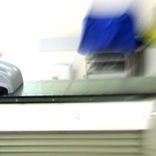
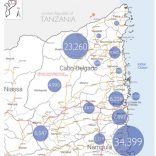
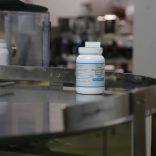
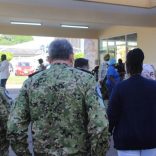
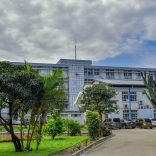




Leave a Reply
Be the First to Comment!
You must be logged in to post a comment.
You must be logged in to post a comment.